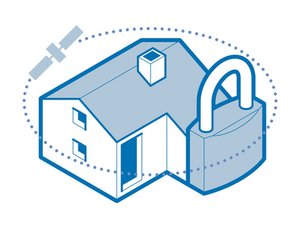
Seamless Living: Repairing Connected Home Devices
Seamless Living: Navigating Connected Home Device Repair
The integration of connected home devices has undoubtedly enhanced modern living. However, when these devices encounter issues, navigating the world of Connected Home Device Repair becomes essential. This article provides insights into troubleshooting and repairing common issues, ensuring your smart home continues to operate seamlessly.
Understanding Common Issues: Diagnosing Device Malfunctions
Before delving into repair solutions, it’s crucial to identify common issues that connected home devices may encounter. From connectivity problems to software glitches, understanding the root cause of malfunctions lays the groundwork for effective repairs. Diagnosing the specific issue enables a targeted approach to resolving connectivity or performance issues.
Troubleshooting Connectivity Problems: Ensuring Seamless Integration
One of the frequent challenges with connected home devices is connectivity issues. Whether it’s smart lights, thermostats, or security cameras, ensuring seamless integration is paramount. Troubleshoot connectivity problems by checking Wi-Fi signals, resetting network settings, or updating device firmware. Connected Home Device Repair often begins with a thorough examination of the network environment.
Software Updates and Device Compatibility: Staying Current for Optimal Performance
Software updates play a vital role in maintaining the optimal performance of connected home devices. As part of Connected Home Device Repair, regularly check for firmware updates provided by manufacturers. Ensuring device compatibility with the latest software versions prevents potential glitches and enhances the overall functionality of smart home components.
Physical Inspections: Examining Hardware Components
In some cases, connected home device issues may stem from physical damage or wear and tear. Conduct a thorough physical inspection of devices to identify any visible damage, loose connections, or faulty components. Addressing these physical aspects is a crucial step in the Connected Home Device Repair process, promoting longevity and reliability.
Resetting and Rebooting: A Simple Yet Effective Solution
Sometimes, a quick reset or reboot can resolve minor issues affecting connected home devices. Whether it’s a smart speaker, smart lock, or smart thermostat, power cycling the device can clear temporary glitches and restore normal functionality. Incorporating this simple troubleshooting step can often save time and effort in the repair process.
Utilizing Manufacturer Resources: Online Guides and Support
Manufacturers of connected home devices typically provide online resources to assist users in troubleshooting and repairs. Accessing manufacturer guides, FAQs, and support forums can offer valuable insights into resolving specific issues. These resources serve as valuable tools in the Connected Home Device Repair toolkit, empowering users to address problems effectively.
Seeking Professional Assistance: When DIY Isn’t Enough
While many issues can be resolved through DIY troubleshooting, some situations may necessitate professional assistance. Connected Home Device Repair services offered by manufacturers or certified technicians can handle complex issues, hardware replacements, or repairs that require specialized knowledge. Knowing when to seek professional help ensures comprehensive solutions.
Securing Data and Privacy: Precautions During Repairs
Connected home devices often store personal data and sensitive information. When engaging in Connected Home Device Repair, take precautions to secure data and privacy. Follow manufacturer guidelines for data protection, perform backups when necessary, and ensure that the repair process






